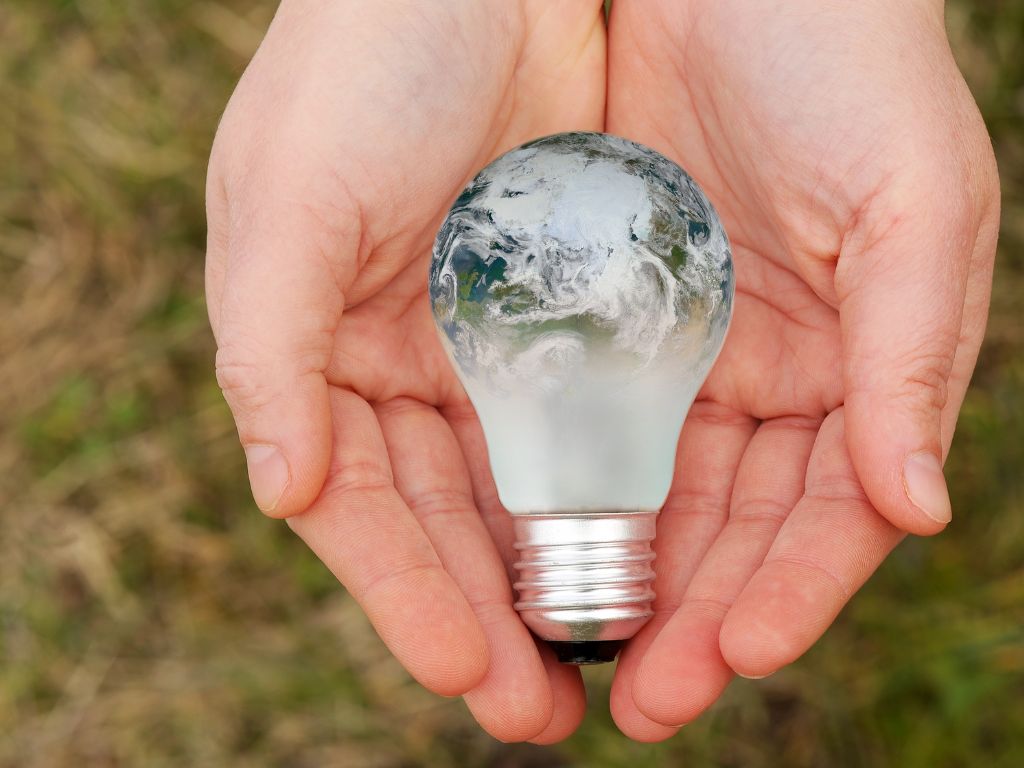Energy Saving Tips

Especially in times when everything is getting more expensive and energy is precious, everyone should reflect on own energy consumption and the habits that go along with it. If every single one of us works on saving energy, a large sum of saved energy adds up.
In order to keep price increases and rent rises in our student residences as low as possible, we depend on your help. We have therefore put together a few energy saving tips. These should help you to find out where you save energy in your everyday life:
Household appliances
Especially when it comes to everyday objects like household appliances, we often don't think about it. Even an appliance with an economical energy efficiency class can consume more electricity when used incorrectly than when used correctly:
Refrigerators and Freezers:
- Let heated food cool down before putting it in the fridge.
- Keep the refrigerator tidy and organized to avoid long searches and to avoid leaving the door open for long periods of time.
- Check the temperature settings or ask the caretaker for advice if you are not sure whether the temperature is sufficient to keep your food fresh.
- Clear out the fridge, defrost it and switch it off in times you are not at home (e.g. semester break, semester abroad or holidays).
- Defrost your appliances regularly, because even a thin layer of ice in the fridge and freezer increases their electricity consumption.
Stove and Oven:
- When cooking and frying, close the pots and pans with the appropriate lid. This way no heat is lost.
- Select the cookware size to match the hob diameter.
- Do not preheat the oven. It is not necessary and wastes valuable heat and thus energy.
- Use the convection function instead of top and bottom heat, because with convection a lower temperature is sufficient for baking.
- Use residual heat when cooking, roasting and baking. To do this, simply switch off the cooker or oven shortly before the dish is completely ready.
- Boil water with a kettle instead of an electric cooker. This is not only faster, but also saves electricity.
Washing Machines and Dryers:
- Always load the washing machine until it is full and do not wash when the washing machine is only half full.
- If possible, wash at low temperatures. With conventional detergents, 30° is enough to get all the laundry clean and fresh.
- To dry, it is best to hang the laundry on the washing line or clothes horse and let it air dry.
Heat Correctly
Valuable energy can often be saved on heating without having to freeze. The following tips ensure that you can enjoy warm rooms even with little consumption:
- Heat rooms only as needed. When you are not at home, you can simply turn down the heating. Many heaters will quickly warm up the room if you turn them up when you get home.
- You don't have to freeze, but still pay attention to the room temperature. Two degrees less will save you almost 10% in energy, and you might still feel more comfortable with one or two degrees less.
- Air properly! This means: get fresh air to the room by opening the windows every few hours, letting the air in for five minutes and then closing them again. This ensures a good exchange of air while furniture and walls retain heat. Airing with a tilted window cools down rooms and lets the heat from your heating go straight outside.
- Make sure that nothing stands in front of the radiator that prevents the heat from being distributed in the room.
- Draw the curtains when it gets dark and keep the doors closed. This will make sure to keep the room’s warmth in for longer.
Saving Water
Water is precious and our habits sometimes contribute to letting water disappear unused down the drain. Even small changes in everyday life can help to save water:
- Do not leave the water running continuously when brushing your teeth or showering, but turn off the tap when shampooing or cleaning your teeth.
- Do not wash dishes one at a time under running water, but fill the sink and wash large quantities of dishes at once.
- Use the stop button when flushing the toilet by pressing the flush button again when the flush is finished.
- Report dripping or broken taps to the caretaker.
Avoid Electricity Guzzlers
An electricity guzzler can be spotted easily by a permanently lit lamp, even if the device is not in use. However, this stand-by mode still consumes electricity. You can deal with it as follows:
- Avoid stand-by mode by unplugging your device or using power strips with a power off button.
- Unplug charging cables that are not in use. They consume power even if they are not charging a device.
- Charge your devices, such as your electric toothbrush, only when needed and do not leave them charging continuously.
We ask you to reflect on your own habits and implement as many tips as possible. We would also like to thank you for the many things might already do to save energy. Please also motivate others to behave considerately and economically. Because: Together we can save a lot of energy with small changes in behavior!
The Studentenwerk Niederbayern/Oberpfalz is also working on finding further ways to save energy. We are currently checking the settings on the heating systems together with specialist companies, assessing the lighting on our outdoor facilities, looking for possible alternatives and working with an energy consultant.


